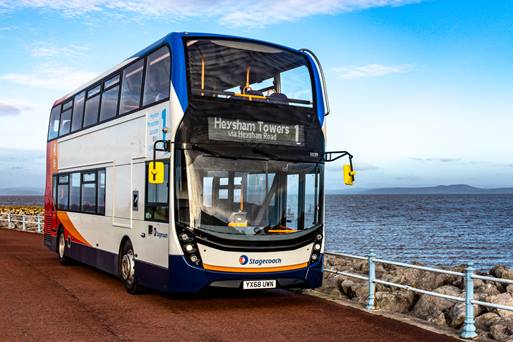Commuters save as much as £300 a month working from home during lockdown

Working from home has saved commuters as much £300 per month during lockdown, new research reveals.
According to a report by Essex Magazine – UK workers were forking out as much as £544 for their monthly commute and other work-related costs prior to the UK going into lockdown last March. However, since then, nearly two thirds (65%) of workers are currently working from home or have done so at some point during lockdown, which has saved them potentially hundreds of pounds in that time.
That’s according to new research by Confused.com, which has analysed the average commuting costs for workers who commute regularly by car, train and bus.
According to the research, UK workers commuted to work as often as five times a week before lockdown, which cost them hundreds of pounds in parking, fares and petrol. But during lockdown, the average weekly commute dropped to as low as two days a week, meaning they were spending significantly less and saving as much as more than £300, on average.
In particular, workers who commute by train are seeing the biggest savings since working from home. Before lockdown, they would fork out a staggering £136 on their train fare, parking and other costs while at their place of work per week, or £544 over the course of the month. This includes food, social activities and other things they wouldn’t have spent their money on if they weren’t at work. Based on the fact that workers who commute via train typically travelled to work five days per week on average, this would make their daily total spend £27. However, the research found that the average weekly commute time for these workers dropped to two days during lockdown, meaning they were only paying out £54 per week. This meant they were saving £82 a week, or £328 over the course of a month.
Similarly, commuters who drive to work each day are saving significant sums while working from home. These workers typically drove to work five days per week before going into lockdown, and were paying out £16 per day, or £80 per week on parking, petrol and other costs. However, during lockdown, their commute dropped to three days a week, meaning they were only paying out £48, per week, on average. This will have saved them £32 per week, or £128 per month.
Train commuters are saving the most money, as they were paying out a staggering £70 per week on train fares alone. This is the biggest commuting expense paid by workers. This is without the additional £20 per week they paid to park near the station. Fuel was the biggest expense for commuters who drove to work, costing £21 per week, and £13 on parking, on average. Meanwhile, those who travelled to work by bus were paying £30 per week for their fare.
However, it isn’t just the commuting cost which is saving workers money while they work from home. The research found that the average UK worker spent £46 on other items while working including food, social activities or things they wouldn’t otherwise have bought if they weren’t at their place of work each day.
Given that many work places have adopted a remote-led working model since going into lockdown, office workers working from home during that time could have potentially saved more than £2,500 in the past nine months. And its likely that many of these workers will continue to work from home for much of 2021, if not longer, as workplaces make these changes permanent for the foreseeable future.




